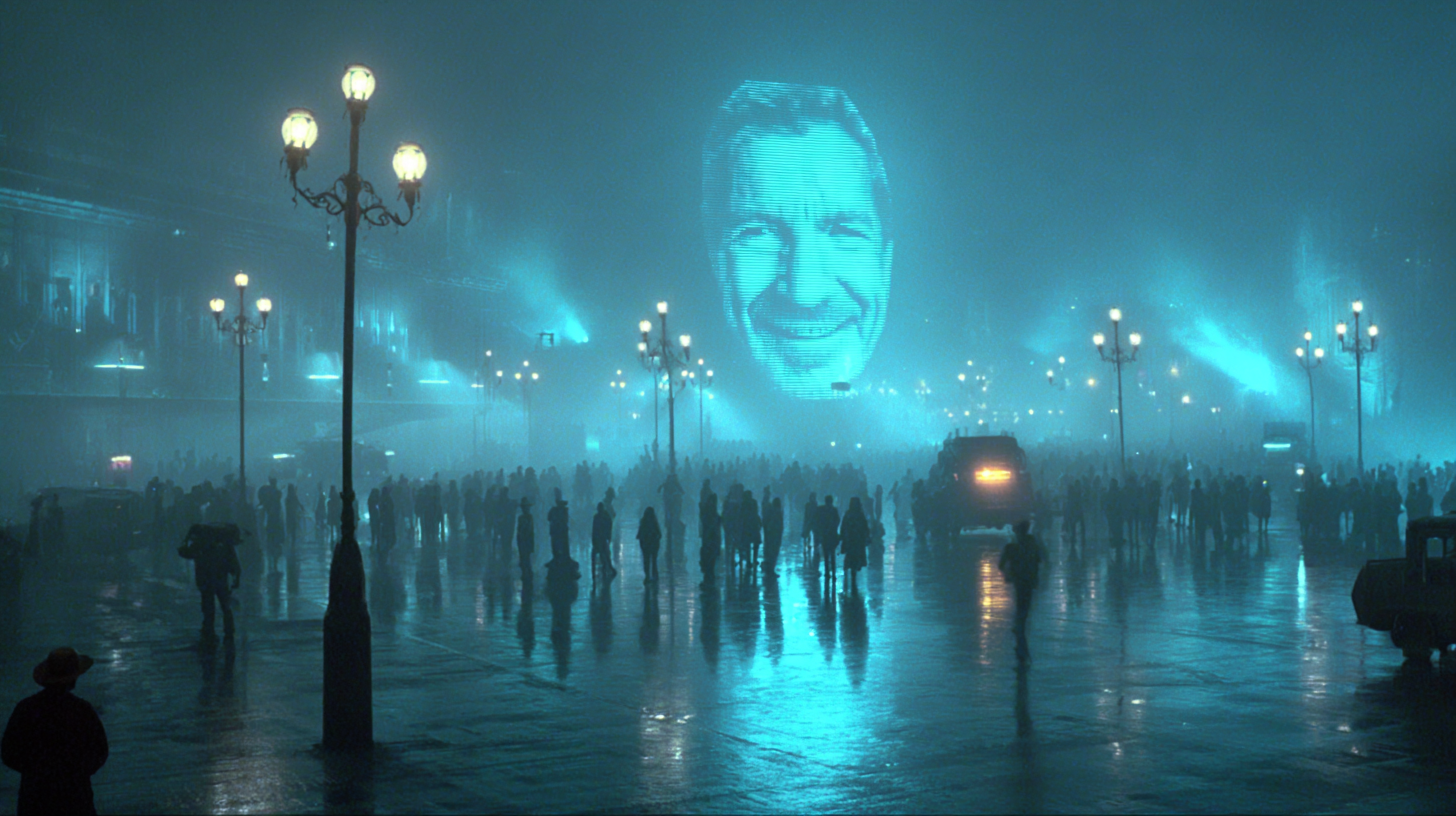Dark Triad Explained: Narcissism, Machiavellianism, Psychopathy
The Dark Triad-narcissism, Machiavellianism, psychopathy-explains how charm, manipulation, and coldness intertwine. Learn the traits, the dangers, and how to recognize the three faces of exploitation.

They rarely arrive snarling. They arrive smiling.
The charmer who flatters you into trust. The strategist who twists the room to their advantage. The cold presence who never flinches at the damage they cause.
Different masks. The same shadow.
Psychologists call it the Dark Triad: three personality traits that overlap in their lack of empathy, their hunger for power, and their willingness to exploit. Narcissism, Machiavellianism, psychopathy-separate strands, bound together by a single thread: callousness.
You'll find them in boardrooms, bedrooms, and ballot boxes. They rise fastest in systems that reward charm, ruthlessness, and short-term wins. They can seduce, inspire, and terrify, often in the same breath.
This is not rare pathology. It's subclinical-traits distributed across society. Which means the Dark Triad is not confined to villains in prison cells or crime dramas. It sits in job interviews. On dating apps. In politics. In your group chat.
Understanding these three faces isn't about theory. It's about survival. Because once you see the patterns, you can't unsee them. And once you can name them, you can resist them.
What Is the Dark Triad?

The Dark Triad isn't a diagnosis. It's a lens.
Coined by psychologists Delroy Paulhus and Kevin Williams in 2002, the term describes three distinct but overlapping traits: narcissism, Machiavellianism, psychopathy. Each carries its own texture-grandiosity, manipulation, coldness-but they share a common core: callousness and exploitation.
Think of it as a psychological Venn diagram.
- Narcissism craves admiration.
- Machiavellianism craves control.
- Psychopathy craves thrill and dominance.

Different appetites, same indifference to who gets hurt. Researchers designed the concept to capture something everyday clinical labels often missed: the way ordinary people - without meeting the threshold for personality disorders - still weaponize traits that corrode trust, relationships, and institutions.
In other words, the Dark Triad is not about monsters in the shadows. It's about the shadows within ordinary people, especially when power and opportunity reward the darkest tendencies.
Narcissism - The Cult of Self

At first glance, the narcissist dazzles. They radiate confidence, charm, and certainty. They know how to light up a room, and how to make you feel lit by their glow.
But beneath the sheen lies fragility. The narcissist is addicted to admiration-craving it like oxygen. Without it, their grandiosity cracks. Criticism cuts deeper than a blade. Rejection feels like annihilation.
What marks narcissism in the Dark Triad isn't just self-love, it's exploitation. Others become mirrors, reflecting back validation. Relationships become stages for their performance. Empathy is hollowed out; admiration takes its place.

Narcissism exists on a spectrum. At the mild end, it fuels ambition, leadership, even creativity. At the extreme, it morphs into narcissistic personality disorder (NPD), marked by entitlement, lack of empathy, and manipulative behaviours.
In modern culture, narcissism thrives because it's rewarded. Influencers curate endless self-image. CEOs spin their charisma into power. Politicians build cults of personality. The narcissist doesn't just survive in today's world-they're celebrated for the very traits that corrode intimacy and truth.
The cult of self has never had such fertile ground.
Machiavellianism - The Master Manipulator
Where the narcissist craves the spotlight, the Machiavellian prefers the shadows.
Cold, calculating, and relentlessly strategic, high-Machs treat life as a chessboard. People are pawns. Relationships are leverage. Morality is optional.
The name comes from Niccolò Machiavelli, the Renaissance thinker whose book The Prince offered rulers a ruthless blueprint: it is better to be feared than loved, and deceit is a tool of power. Modern psychology borrowed his name for those who embody this philosophy not just in politics, but in daily life.

Machiavellianism is marked by three traits:
- Strategic manipulation: Long-term planning, pulling strings quietly.
- Cynicism: Assuming everyone is self-serving, so morality is irrelevant.
- Pragmatism: Winning matters more than fairness.
High-Machs aren't impulsive like psychopaths. They're patient. They bide their time, cultivate influence, and strike when it counts. This makes them dangerous not for their explosions, but for their persistence.
In workplaces, they thrive in office politics. In relationships, they use charm and deception as tools. In leadership, they cloak self-interest as pragmatism.
Where narcissists want applause and psychopaths want chaos, Machiavellians want control. And they'll wait as long as it takes to get it.
Psychopathy - The Cold Predator

If narcissism dazzles and Machiavellianism plots, psychopathy devours.
Psychopaths are marked by callousness, impulsivity, and thrill-seeking. They feel little fear, little remorse, and little empathy. To them, people are not companions or colleagues-they are tools, obstacles, or prey.
Unlike narcissists, they don't hunger for admiration. Unlike Machiavellians, they don't always wait patiently for the long game. Psychopaths live for the immediate rush-risk, dominance, the thrill of breaking rules.
Clinical psychopathy is measured by tools like Robert Hare's Psychopathy Checklist (PCL-R), often used in forensic settings. But psychopathic traits also appear subclinically: in boardrooms, politics, or sales teams. These so-called "corporate psychopaths" can charm investors, make ruthless decisions without blinking, and climb ladders faster than those slowed by conscience.
The dark psychology of psychopathy lies in its emotional poverty. Charm without care. Action without regret. Desire without restraint.
It's not always violent crime. Sometimes it's the executive who cuts thousands of jobs with a smile. Sometimes it's the partner who betrays without a flicker of guilt. Sometimes it's the leader who gambles with millions of lives, chasing only their own win.
The predator doesn't always snarl. Sometimes it shakes your hand.
How They Overlap - and How They Differ

The Dark Triad traits share a family resemblance, but each wears its own mask.
The overlap:
- All three are marked by low empathy and callous exploitation.
- All three place self-interest above morality.
- All three can charm, deceive, and harm-without remorse.
The differences:
- Narcissism is fueled by admiration. The narcissist wants the spotlight and fears humiliation.
- Machiavellianism is fueled by control. The Machiavellian plays the long game, patient and pragmatic.
- Psychopathy is fueled by thrill. The psychopath seeks stimulation and dominance, often reckless and cold.
Think of them as three predators hunting differently:
- The narcissist courts the crowd.
- The Machiavellian pulls the strings.
- The psychopath takes the kill.
In reality, people rarely embody just one. Traits bleed together. A narcissist may use Machiavellian tactics. A psychopath may bask in narcissistic charm. That blending is what makes the Dark Triad so dangerous: it creates personalities capable of seduction, strategy, and destruction all at once.
Why the Dark Triad Matters

The Dark Triad isn't just an academic curiosity. It leaves fingerprints everywhere.
In dating
Research shows high Dark Triad scorers pursue short-term mating strategies-charm at first sight, betrayal soon after. They're skilled at seduction, but struggle with loyalty. What feels like passion is often exploitation.
In leadership
These traits can look like assets. Narcissistic charisma inspires. Machiavellian strategy wins promotions. Psychopathic fearlessness drives bold decisions. But the cost is corrosive-broken teams, toxic workplaces, and decisions that sacrifice people for power.
In society
Dark Triad traits are rewarded in systems that prize confidence, manipulation, and ruthless efficiency. Politics, business, and influencer culture often elevate those willing to exploit. The result? Leaders who look like visionaries but leave wreckage in their wake.
The reason the Dark Triad matters is simple: it thrives in plain sight. It doesn't hide in prisons or asylum case files. It hides in promotions, in campaign speeches, in viral TikToks. And the damage it does-emotional, social, political-is measured in lives bent to someone else's hunger.
How to Recognise the Masks

You won't banish the Dark Triad from the world. But you can learn to see it.
Spot the tells
- The narcissist flatters, but can't handle critique.
- The Machiavellian charms, but every move has an agenda.
- The psychopath thrills, but never flinches at the harm left behind.
Set boundaries
Charm without empathy is a red flag, not a gift. Keep distance when warmth comes without care.
Collective accountability matters too
Toxic leaders thrive when systems reward ruthlessness. Transparency, oversight, and cultural shifts toward empathy are the antidotes to their ascent.
Above all, resist the spell of charisma. These traits seduce because they look like strength-confidence mistaken for competence, fearlessness mistaken for vision. Don't confuse the mask for the person behind it.
The Dark Triad isn't just a study in psychology. It's a survival manual. Because the shadows don't just lurk on the margins-they walk in daylight, rewarded until they destroy.
Want to learn the techniques of manipulation for yourself? Join the Dark Mirror Collective.
Join now for 50% off.







